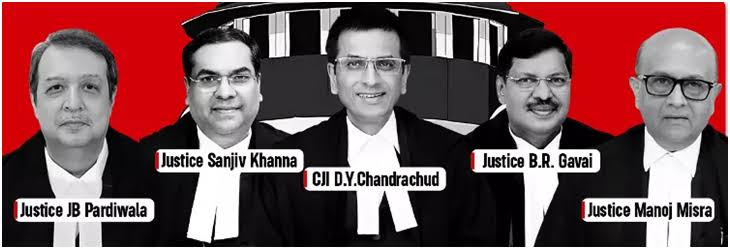The Supreme Court of India has invalidated the controversial electoral bond scheme, branding it “unconstitutional.” The decision comes at a critical juncture, as political funding through this system had reached its zenith, with bonds worth billions sold in the past 10 months alone, significantly altering the landscape of political finance in the country.
The scheme, introduced in 2017 as a Money Bill, circumvented the scrutiny of the Rajya Sabha, drawing ire from opposition parties and civil society alike. However, it was only the CPI (M), along with other petitioners such as the Association for Democratic Reforms (ADR), that challenged its legality in court.
Central to the court’s ruling was the assertion of transparency and the public’s right to information concerning the origins of funds received by political parties. The bench not only halted further issuance of electoral bonds but also mandated the disclosure of donor and recipient details for all political funding facilitated by the scheme. This move is poised to bring unprecedented transparency to the opaque realm of political finance in India.
Civil society groups raised concerns that anonymous funding could increase corporate influence on government policies, with no mechanism for identifying potential quid pro quo arrangements. The staggering sums involved only heightened these apprehensions, with recent government disclosures revealing a whopping Rs 16,518 crore worth of bonds sold since January 2018, a significant portion of which was transacted in the months leading up to the court’s ruling.
Notably, the dominance of the Bharatiya Janata Party (BJP) in electoral bond earnings, particularly during the financial year 2019-20 coinciding with the Lok Sabha elections, raised eyebrows. While the Congress also benefited from this mechanism, its share was comparatively smaller, albeit still substantial.
The Supreme Court’s decision carries far-reaching implications, not only in terms of ensuring transparency in political funding but also in safeguarding the citizens’ right to information, enshrined under Article 19(1)(a) of the Constitution. The court underscored the vital role of information in fostering good governance, accountability, and citizen engagement. Furthermore, it recognized the importance of information in shaping public discourse and facilitating informed decision-making on social, cultural, and political matters.
Respondents had argued that invalidating the electoral bond scheme would encroach upon donor privacy and infringe on the right to informational privacy. However, the court struck a delicate balance between these competing interests, prioritizing the larger public interest in transparency and accountability in political finance.
In essence, the Supreme Court’s ruling heralds a new era of transparency and accountability in political funding, reaffirming the foundational principles of democracy and empowering citizens to make informed choices. As the Election Commission of India prepares to release detailed data on political funding, the nation eagerly awaits the dawn of a more transparent and accountable political ecosystem.

